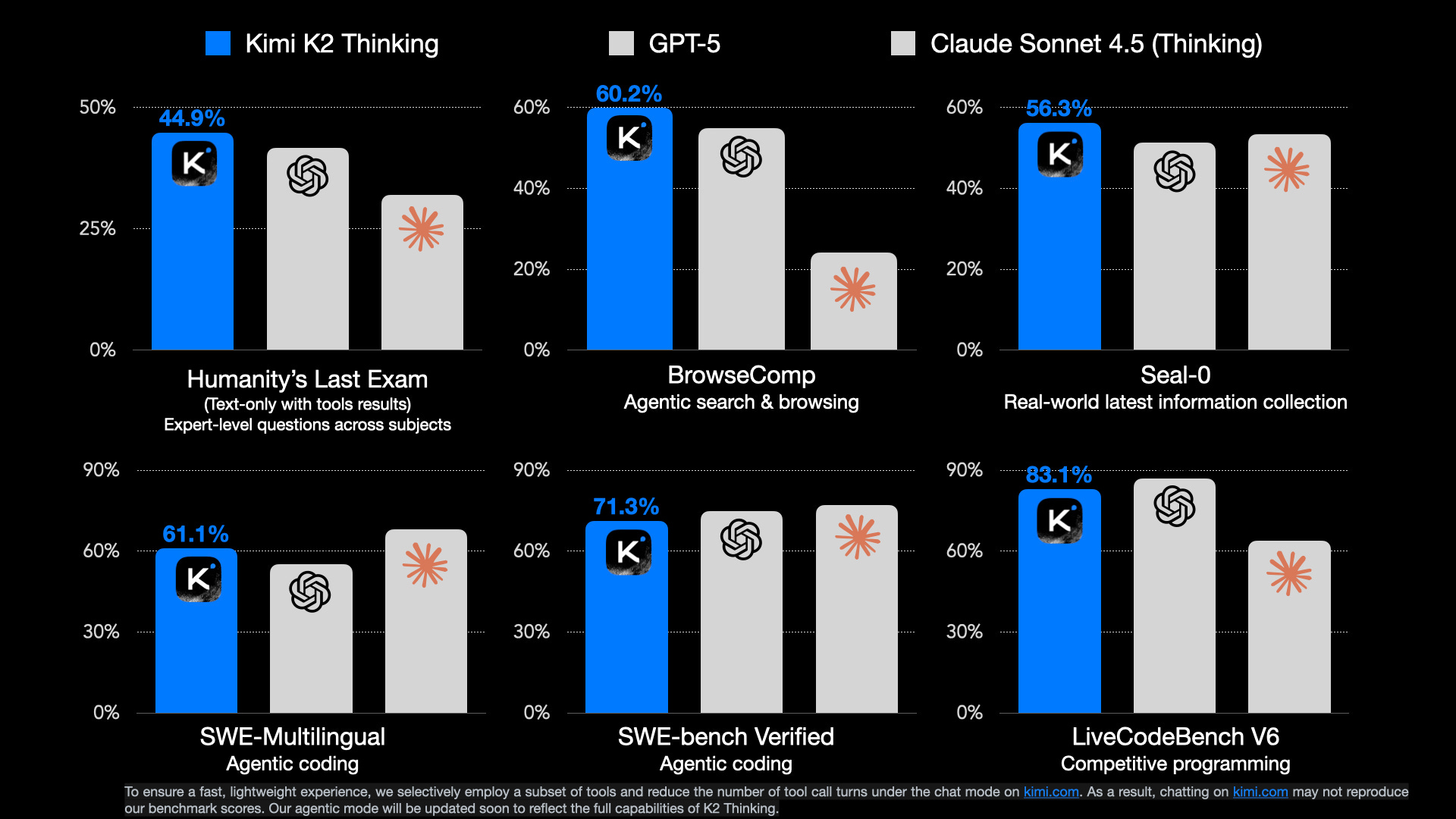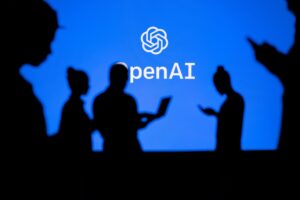Moonshot's Kimi K2 Thinking emerges as leading open source AI, outperforming GPT-5, Claude Sonnet 4.5 on key benchmarks
PositiveArtificial Intelligence

Moonshot's Kimi K2 Thinking emerges as leading open source AI, outperforming GPT-5, Claude Sonnet 4.5 on key benchmarks
Moonshot's Kimi K2 Thinking has emerged as a leading open source AI, surpassing established models like GPT-5 and Claude Sonnet 4.5 on key benchmarks. This development is significant as it highlights the growing competition in the AI sector, particularly from Chinese providers, and raises questions about the sustainability of OpenAI's high spending strategy. As the landscape evolves, the advancements in open source AI could democratize access to powerful technologies, benefiting a wider range of users and industries.
— via World Pulse Now AI Editorial System







